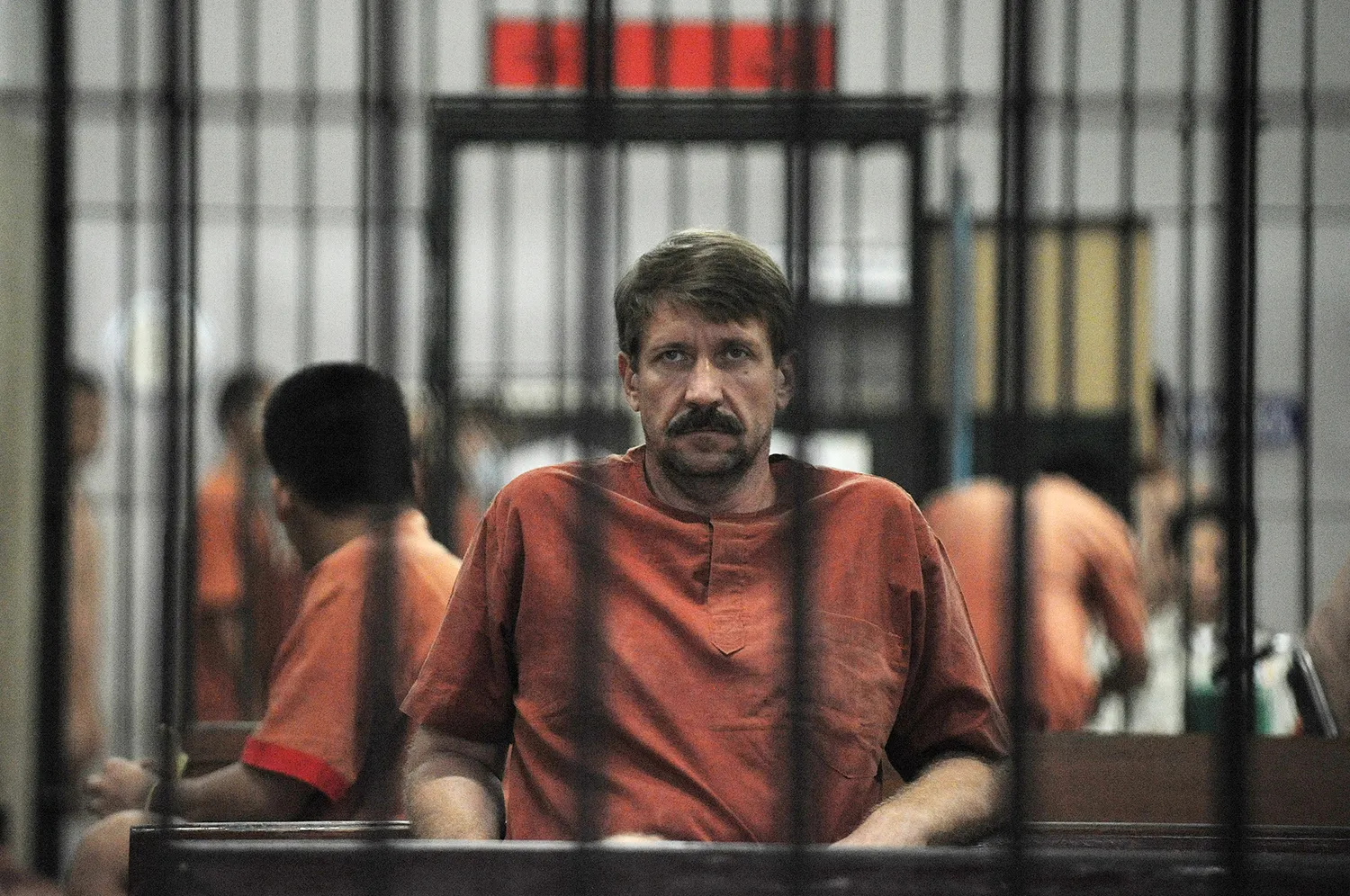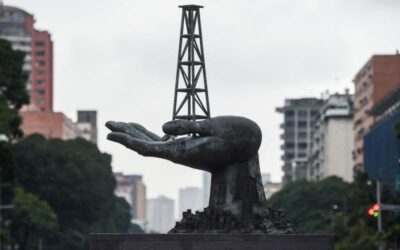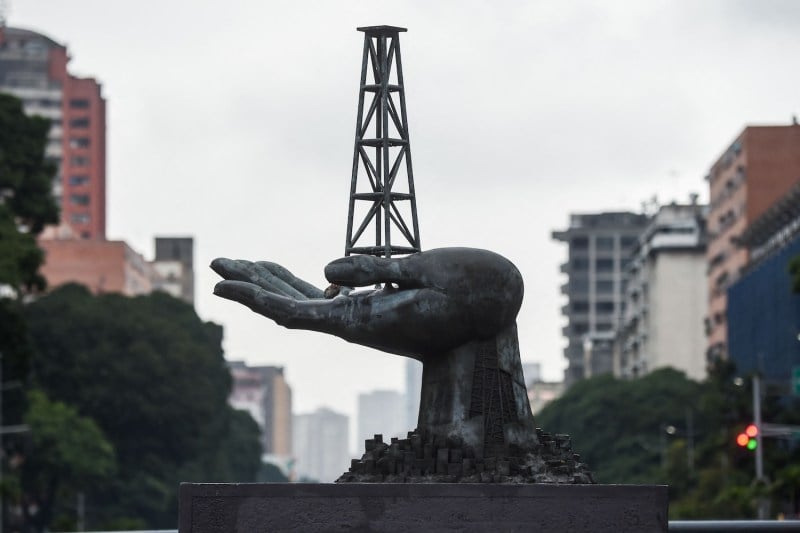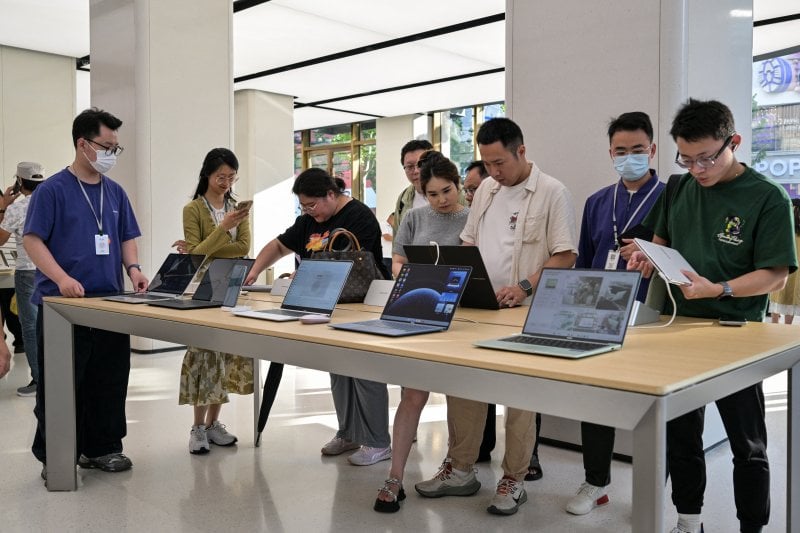Who Is Viktor Bout, Really?

Excerpt
Who Is Viktor Bout, Really?
An investigative journalist heads to Moscow to hear from the “merchant of death” himself.
Viktor Bout sits in a temporary cell ahead of a hearing in Bangkok on Aug. 20, 2010. Christophe Archambault/AFP via Getty Images
I first contacted Viktor Bout in January 2023, one month after U.S. President Joe Biden released him early from a 25-year prison sentence and returned him to Moscow at the height of the war in Ukraine. In a Bridge of Spies-style exchange, Bout—once considered the world’s biggest arms trafficker—was traded on the tarmac at Abu Dhabi airport for Brittney Griner, an Olympic-medal-winning U.S. basketball star, who had been jailed in Russia for minor drug offenses.
Many members of U.S. law enforcement and prosecutors who had worked on Bout’s capture (in 2008) and conviction (in 2012) were appalled by Biden’s decision, with one former senior government official declaring: “Anyone who thinks [Bout is] washed up and Putin is not going to push him back into service doesn’t understand how the real underworld works.”
I first contacted Viktor Bout in January 2023, one month after U.S. President Joe Biden released him early from a 25-year prison sentence and returned him to Moscow at the height of the war in Ukraine. In a Bridge of Spies-style exchange, Bout—once considered the world’s biggest arms trafficker—was traded on the tarmac at Abu Dhabi airport for Brittney Griner, an Olympic-medal-winning U.S. basketball star, who had been jailed in Russia for minor drug offenses.
This article is adapted from Russia’s Man of War: The Extraordinary Viktor Bout by Cathy Scott-Clark (Hurst, 424 pp., $34.99, April 2025).
Many members of U.S. law enforcement and prosecutors who had worked on Bout’s capture (in 2008) and conviction (in 2012) were appalled by Biden’s decision, with one former senior government official declaring: “Anyone who thinks [Bout is] washed up and Putin is not going to push him back into service doesn’t understand how the real underworld works.”
Bout’s world was shrouded in secrecy and obfuscation, just as the entire world of the arms market is. Bout told me that if I was willing to come to Moscow, then he would answer all my questions. For some time, I hesitated. Ukraine was engulfed by war and although Griner was now free, several other Westerners were languishing in Russian prisons on trumped-up charges as President Vladimir Putin collected pawns to play. Such was the animosity toward Russia that I also thought hard about how such a trip would be seen, and whether, by going, I would be labelled a Putin apologist or used to promote disinformation.
Yet I was fascinated by the axis that stretched from Bout’s naming and shaming to his pardon and release. It was a complex story that had its roots in the collapse of the Soviet Union and its finale on the battlefields of Eastern Europe. In the end, I decided I would go to Moscow and hear his story.
Bout speaks at the Liberal Democratic Party of Russia congress in Moscow on Dec. 19, 2023. Natalia Kolesnikova/AFP via Getty Images
Getting to Moscow, a four-hour journey from London before the war, now involved an expensive and circuitous 24-hour journey via Istanbul or Bahrain. Bout’s “chief of staff,” a friendly man called Sergey, picked me up from Vnukovo airport in his boss’s car, a mid-range Volvo. He drove me in jetlagged silence to a downtown art gallery where the snow was piled up around the entrance and Bout had hung an extensive collection of prison art, work he had done to pass the time during years of incarceration in a U.S. maximum security jail in Marion, Illinois.
A tall, middle-aged man dressed in a polo necked jumper and a tweed jacket strode over. He had a hound-dog gaze and was a fraction of the weight he had carried in the photos taken of him in the field. “I’m Viktor,” he said, proffering a hand. An unsmiling middle-aged woman also stepped forward. “This is my wife, Alla,” he said.
After two minutes of chit-chat about my journey, Bout said he had another meeting. I should look at his artwork, then go to my hotel and rest. We would catch up “later.”
I thought I would be left dangling, but the following morning, Bout turned up early, ordered luminous yellow sea buckthorn tea, and began talking. As we began to discuss his years of incarceration and the U.S. contention that he was the most dangerous man in the world, he slowly warmed up. Soon he was laughing and showing me AI-generated fan art done by Russians for whom he was a hero. “Do I look like somebody who is gonna kill somebody?” he asked, only half-joking. But this was never the contention and was an example of the rhetoric he would deploy that evaded the real political and moral questions about his life.
Bout insisted that during the early days, when he flew weapons to dictators and murderous rebel armies all over Africa, he was simply a businessman helping post-colonial proto-communist liberation movements defend themselves in government-to-government deals. The West was often arming the other side of right-wing regimes and authoritarian rulers. Amid the decay that followed the collapse of the Soviet Union and the atomization of its client states rose warlords and new political fronts. Bout, who flew carriers into these new conflicts, claimed he was not responsible for what warlords and presidents did with the weapons, and he denied profiting from blood diamonds or arming child soldiers. He was simply a logistician, not the buyer, the seller, or the wielder of arms. His specialty was identifying “sweet spot” opportunities to make money with his air fleet, and he had fully intended to continue until someone stopped him.
The U.S. government saw things differently. The CIA, FBI, the Drug Enforcement Administration, and Departments of the Treasury and Justice blamed Bout for hundreds of thousands of deaths—for arming rampaging militias, who raped and tortured—even though the United States was by far the world’s most prolific arms supplier. By 2023, Washington would be exporting $238 billion in arms a year, including almost unimaginable sums to Israel. In almost all locations where Bout had ventured, the United States had been arming the other side, often using proxies and cut-outs to transship weapons invisibly. Sometimes, they would be competing to assist the same side, and to claim the same assets in payment, mining concessions, or precious stones.
Bout arrives for an extradition hearing at Thailand’s Supreme Court in Bangkok on July 28, 2008.Chumsak Kanoknan/Getty Images
Eventually, the United States did stop Bout. During his years of incarceration, he and the Kremlin insisted he was targeted by the West only because he was Russian, and a competitor canvassing for influence in places where Western arms and security interests dominated. His mirror image in the United States, was, he would argue, the Blackwater founder Erik Prince, who was also called a “war profiteer” but who enjoyed a direct line to the White House and the CIA headquarters at Langley. Prince publicly advocated putting “the imperial hat back on” in Africa because most African countries were “incapable of governing themselves.”
Prince flaunted his CIA connections but was careful never to talk specifics. Bout repeatedly denied claims he was a Russian intelligence asset. But there was no hiding the fact that deep state connections had enabled him to weave his way through Soviet entropy. Born in Tajikistan, the smallest and poorest Soviet republic, Bout had somehow managed to embark on a stellar military career at an elite language academy run by Soviet military intelligence in Moscow, followed by much sought-after foreign deployments to Soviet outposts in Africa. The CIA was convinced that Bout was a protégé of Igor Sechin, Putin’s long-term confidante.
Bout was in his early 20s when the Soviet Union collapsed, and as the new order dawned, he officially cut loose from the military to embrace business with determination. Bread queues strangled Moscow, and the U.N. flew in emergency food aid, while Bout rose above the starving masses and assisted in a fire-sale of state assets. Like the oligarchs, who would later be hunted down, prosecuted, or killed by former KGB men acting on Putin’s orders, Bout traded in hard currency (a crime during Soviet times) while millions of citizens lost everything. However, while Bout claimed that oligarchs like Mikhail Khodorkovsky and Boris Berezovsky had robbed Russia, he said he had only enriched it. Everything he did was for and on behalf of the state, he maintained. A percentage of every weapons transport deal he did was returned to the coffers of the Russian military.
Bout’s unique selling point was his military and intelligence contacts’ book. Leasing Russian-built Ilyushin and Antonov military aircraft at knock-down prices and hiring out-of-work Russian military pilots, navigators, and technicians, he began his career by importing sausages and beer, then graduated to exporting AK-47s and helicopter gunships. “Never fly empty,” was his motto.
By the time Bout was 30, he was a multimillionaire, with a “merchant of death” label that stuck to him like flypaper. He was a KGB officer, agent, or asset, doing the Kremlin’s bidding and endangering the West, said the White House. He was a terrorist facilitator and fire-lighting numerous conflicts raging across sub-Saharan Africa and beyond, said U.N. weapons inspectors. He was an amoral master criminal and the world’s most prolific arms trafficker, according to the U.S. State Department, Interpol, the CIA, and MI6. At first, he enjoyed the notoriety, but later it cost him his fortune and his liberty.
The more Bout protested his innocence, the more the West denounced him. After 9/11, the U.S. National Security Council described him as the second-most dangerous man in the world after Osama bin Laden. In 2005, Nicholas Cage portrayed Bout in the Hollywood blockbuster Lord of War (a sequel was announced in 2023).
The “notorious Viktor Bout,” as the Western media took to calling him, appeared to be everywhere, trafficking stockpiles of Soviet-era weapons from Russia, North Korea, Bulgaria, Poland, Romania, Moldova, Iran, and Slovakia into the world’s worst conflict zones: Liberia, Angola, Congo, Rwanda, Afghanistan, Sudan, Sri Lanka, and the Central African Republic. He didn’t deny it. “I was good because I kept my mouth shut,” he reflected. “There were no leaks. There was no scandal.” If he meant by this that the trail stopped cold with him and did not contaminate Moscow, then he was right.
Eventually he was lured by undercover U.S. law enforcers into a sting in Thailand. After two years of legal arguments that he had not committed any crime, he was extradited to New York in 2010 and convicted for conspiring to kill Americans.
Bout in Moscow on April 7, 2023. Boris Alekseev/Anadolu Agency via Getty Images
When I mentioned during my first trip to Moscow that I was nervous about being back in Russia, a country I had last visited in 2004, Bout laughed. “No, no, you’re in a safe country now!” he said. A few days later, FSB officials seized Wall Street Journal reporter Evan Gershkovich in Yekaterinburg and charged him with espionage, marking the first time a U.S. journalist had been detained in Russia since the end of the Cold War. I wondered if Bout’s response typified the man, that he was as agnostic about the safety of others as he was blind to the repercussions of his actions.
At the end of my first trip, I promised to only tell him the truth. This proved to be enough. Bout agreed to let me tell his story. “We have a meeting of minds,” he said. “I appreciate everything you do. I really like your style. We both share the same kind of determination and focus like bulldog grabbing.” After I returned to London, he sent a digital bunch of flowers. Who was playing who?
In the months that followed, my interviews with Bout would be matched to the recollections of those he served with, worked alongside, and employed—and those who tracked and finally captured him.
The wafts and wefts of claims and counter claims by all sides became the source material for my book. Over nine months, I witnessed his rehabilitation from close-up. Bout joined a far-right, ultra-nationalist party and cozied up to the doomed Wagner boss Yevgeny Prigozhin, Chechen strongman Ramzan Kadyrov, and new Russian governors Putin had placed in charge of occupied Ukraine. By September 2023, Bout was a rising political star, courted by Putin insiders, and he was also back doing business in Africa (and possibly Yemen, too)—his 15 years behind bars having only enhanced his determination to do deals on the chalk lines of legality.
During one conversation on my last visit to Moscow in November 2023, Bout fixed me with his famous killer expression: “I was the number one bogeyman from Russia. According to your Western governments, I am a monster. Now you have spent so much time with me, do you still think this is true?”
I said “no,” but what I really thought was more complex. Bout was an exemplar of an opaque and deadly life-consuming, job-creating, economy-boosting toxic business, that, sunk in fog, was far more frequently the purview of nation states than individuals. And history’s war horses, the hard men, dusted their tracks, carefully concealing where they intersected with the governments everywhere.
From Russia’s Man of War: The Extraordinary Viktor Bout. Copyright © 2025 by Cathy Scott-Clark and published by Hurst Publishers. All rights reserved.
Books are independently selected by FP editors. FP earns an affiliate commission on anything purchased through links to Amazon.com on this page.
Cathy Scott-Clark is an award-winning investigative journalist, author, and filmmaker. She has worked with HBO, the BBC, the Sunday Times, and the Guardian. X: @cathyscottclark
More from Foreign Policy
-

An illustration shows a golden Cybertruck blasting through a U.S. seal of an eagle holding arrows and laurel. Is America a Kleptocracy?
Here’s how life could change for the rich, poor, and everyone in between.
-

The flag of the United States in New York City on Sept. 18, 2019. America Is Listing in a Gathering Storm
Alarms are clanging at the U.S. geographic military commands around the globe.
-

U.S. President Donald Trump shakes hands with Supreme Court Chief Justice John Roberts during Trump’s inauguration in Washington, D.C. The U.S. Judicial Crisis Is Uniquely Dangerous
But other democracies provide a roadmap for courts to prevail over attacks from the executive branch.
-

An illustration shows a golden Newtons cradle with Elon Musk depicted on the one at left and sending a globe-motif ball swinging at right. Elon Musk’s First Principles
The world’s richest man wants to apply the rules of physics to politics. What could go wrong?













Join the Conversation
Commenting on this and other recent articles is just one benefit of a Foreign Policy subscription.
Already a subscriber?
.
Subscribe
Subscribe
View Comments
Join the Conversation
Join the conversation on this and other recent Foreign Policy articles when you subscribe now.
Subscribe
Subscribe
Not your account?
View Comments
Join the Conversation
Please follow our comment guidelines, stay on topic, and be civil, courteous, and respectful of others’ beliefs.
Change your username |
Log out
Change your username:
CANCEL
Confirm your username to get started.
The default username below has been generated using the first name and last initial on your FP subscriber account. Usernames may be updated at any time and must not contain inappropriate or offensive language.